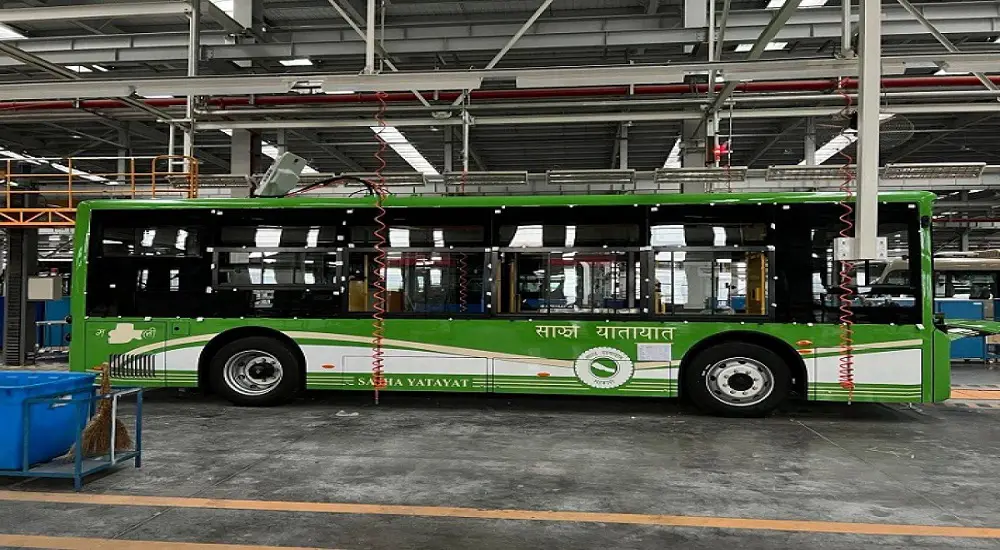Electric busses from Sajha Yatayat has started plying the streets in Kathmandu. At an event today, Sajha soft-launched its highly anticipated EV service.
In the initial phases, Sajha will have three electric buses start their public transport services in Kathmandu. They will operate on two routes. Sajha has shared that one of the busses will run from Lagankhel – Jwalakhel – Tripureshwar -Bansbari to Budhanilkantha. The other two busses take the route from Machhapokhari – Balaju – Sohrakhutte – Purano Buspark – Maitighar to Airport.
Sajha has also informed that its electric busses are friendly to the physically disadvantaged.
At the launch event, the Chairman of Public Transport Kanak Mani Dixit expressed his gratitude to the government for its investment in electric transport by taking into consideration the economy, environment, and convenience of the passengers. “We have requested the government to provide a large area charging station for the electric bus. We are hopeful that land will be available for the charging station as soon as possible,” he added.
At the same time, he also suggested that the government should provide cheaper loans to further investments in public EV transport in view of the private sector’s large presence.
Likewise, Sajha says the special priority is given to the women drivers and assistants in EVs.
The buses were imported via the Tatopani Custom point in April. The 4-wheelers made in China will be part of Sajha’s EV project that will see more buses coming installments.
Sajha three four-wheelers are part of the first phase initiation. These EVs entered Nepal through the Tatopani custom checkpoint. But in total, Sajha will be importing 40 buses which means 37 others will be on their way soon. All these buses are likely to operate in the capital.
The three buses about to hit the road for commercial service are 3.9 meters long and accommodate 25 passengers. In the second phase, Sajha will bring 12 meters long EVs.
The three buses rode through the uneven terrain from the Tatopani point to ensure their ability to pull in hilly areas. These buses are customized to suit the specifications of Nepali conditions.
CHTC, a Chinese company manufactured these EVs. Thee Go, the company that sells CHTC vehicles in Nepal informed that the three buses have pulled through their gradeability tests at the Tatopani Custom point.
Gradeability tests are done to analyze or evaluate a vehicle’s ability to navigate along the slopes.
Also read: NEA Building 50 Electric Charging Stations In Nepal In 6 Months
Sajha Yatayat investing multimillion on EVs
As for the costs, Sajha Yatayat is investing a huge fortune in these eco-friendly buses. Each bus Sajha is bringing costs Rs.15 million on each bus. So in total, the cooperative-managed company will spend a hefty Rs.610 million for all 40 buses.
These buses will be equipped with WiFi connectivity, TV display, and CCTV for security.
Must read: You Can Convert Your Petrol Vehicle into an Electric Vehicle
Are you happy with the prestigious Sajha emphasizing electric buses in the capital? Will it promote the growth of EVs for public transport in Nepal? Do share your opinions in the comments below.



